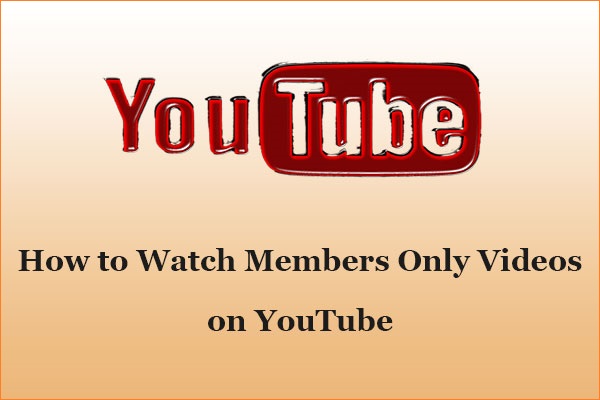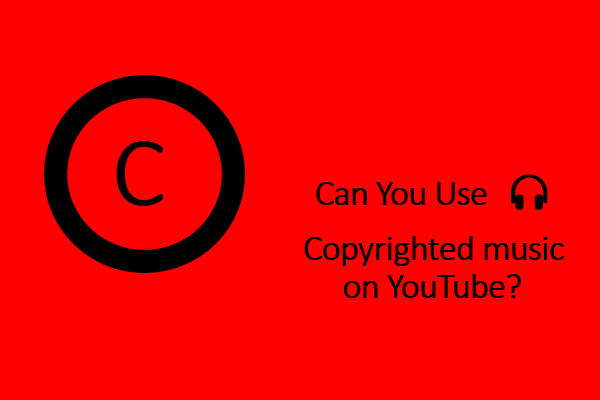As a YouTube creator, navigating the complexities of copyright can be challenging. Two terms that often cause confusion are copyright claim and copyright strike. While they are related to copyright infringement, they have distinct differences and consequences. Let’s dig into the differences between copyright claim vs strike on YouTube.
What Is Copyright?
Copyright is a legal right that grants the creators of original works the exclusive right to use and distribute their creations. This right applies to various types of creative works, including music, videos, books, artwork, photographs, literary work, and much more. In essence, copyright gives the creator the authority to determine how their work is used, distributed, and monetized.
MiniTool Video ConverterClick to Download100%Clean & Safe
What Is a Copyright Claim on YouTube?
A copyright claim on YouTube is a notification sent by YouTube’s Content ID system when it detects that a portion of your video matches another copyrighted work. One common scenario is when you’ve used music, video clips, or other content that is owned by someone else.
It’s important to note the following key points about copyright claims:
- A copyright claim only affects the individual video, and it does not negatively affect your entire YouTube channel.
- The rights owner may be able to claim any revenue generated by your video if you have used their work without permission.
- Copyright holders have the ability to place ads on your video to earn revenue for themselves.
- The copyright owner also has the ability to block your video from being shown in specific regions or countries.
- Copyright claims can be proven false if you can demonstrate that you have the rights or the proper license to use the content in question.
- The copyright holder may choose not to take any action at all, even after a claim has been made.
Additionally, it’s important to understand that copyright claims do not affect the overall status of your YouTube channel. If you believe that your use of the content is fair use, you may dispute the claim.
What Is a Copyright Strike on YouTube?
A copyright strike on YouTube is more serious than a copyright claim. It’s a formal penalty issued by YouTube when a user repeatedly violates copyright laws. If you receive three strikes, your account can be terminated. A strike can result from ignoring multiple copyright claims, a legal complaint directly from the copyright owner, or violating YouTube’s community guidelines.
Here’s what happens when you receive a copyright strike:
- Video removal: The video in question is removed from YouTube.
- Penalties: If you receive a strike, you will lose access to certain YouTube features, such as live streaming. If you receive three strikes, your channel will be terminated.
- Counter notification: If you believe your video was wrongly removed, you can submit a counter notification. If it’s accepted, the strike will be removed.
- Strike expiration: A strike will expire after 90 days, provided you complete Copyright School, which is an online course provided by YouTube.
YouTube Copyright Claim vs Strike: Here’s the Difference
So, what’s the difference between copyright claim and strike on YouTube?
Copyright claims are automated through YouTube’s Content ID program, which actively scans all uploaded videos for copyrighted material. On the other hand, a copyright strike is a more serious matter, typically resulting from a legal action initiated directly by the copyright holder.
A copyright strike occurs when a rights holder formally requests the removal of a video due to the unauthorized use of copyrighted audio, image, or video content. To initiate a copyright strike, the rights owner must provide YouTube with their contact information, a detailed description of the copyrighted material, and a sworn statement confirming that they believe their material is being used without proper permission.
How To Avoid Copyright Claims and Strikes on YouTube
How to avoid copyright claims and strikes on YouTube? To protect your channel, consider the following tips:
- Only upload videos you’ve created or have permission to use.
- Use royalty-free or Creative Commons licensed content.
- Understand and respect fair use guidelines.
- Dispute claims only if you’re certain you have the rights to the content.
- Regularly check your channel for any claims or strikes and address them promptly.
By understanding and respecting copyright laws, you can create content that is both original and compliant with YouTube’s policies.
Conclusion
In conclusion, while both copyright claims and strikes are mechanisms to protect the rights of copyright owners, they have different impacts on content creators. It’s crucial for YouTube creators to understand these differences and ensure they respect copyright laws when creating and sharing content.




![How to Know If a Song Is Copyrighted? [Guide]](https://images.minitool.com/youtubedownload.minitool.com/images/uploads/2020/04/how-to-know-if-a-song-is-copyrighted-thumbnail.png)